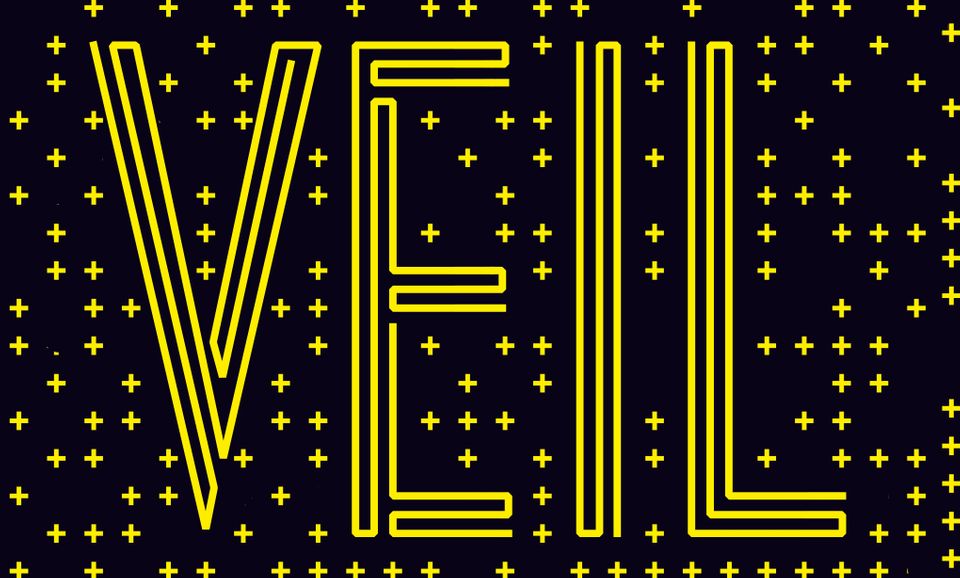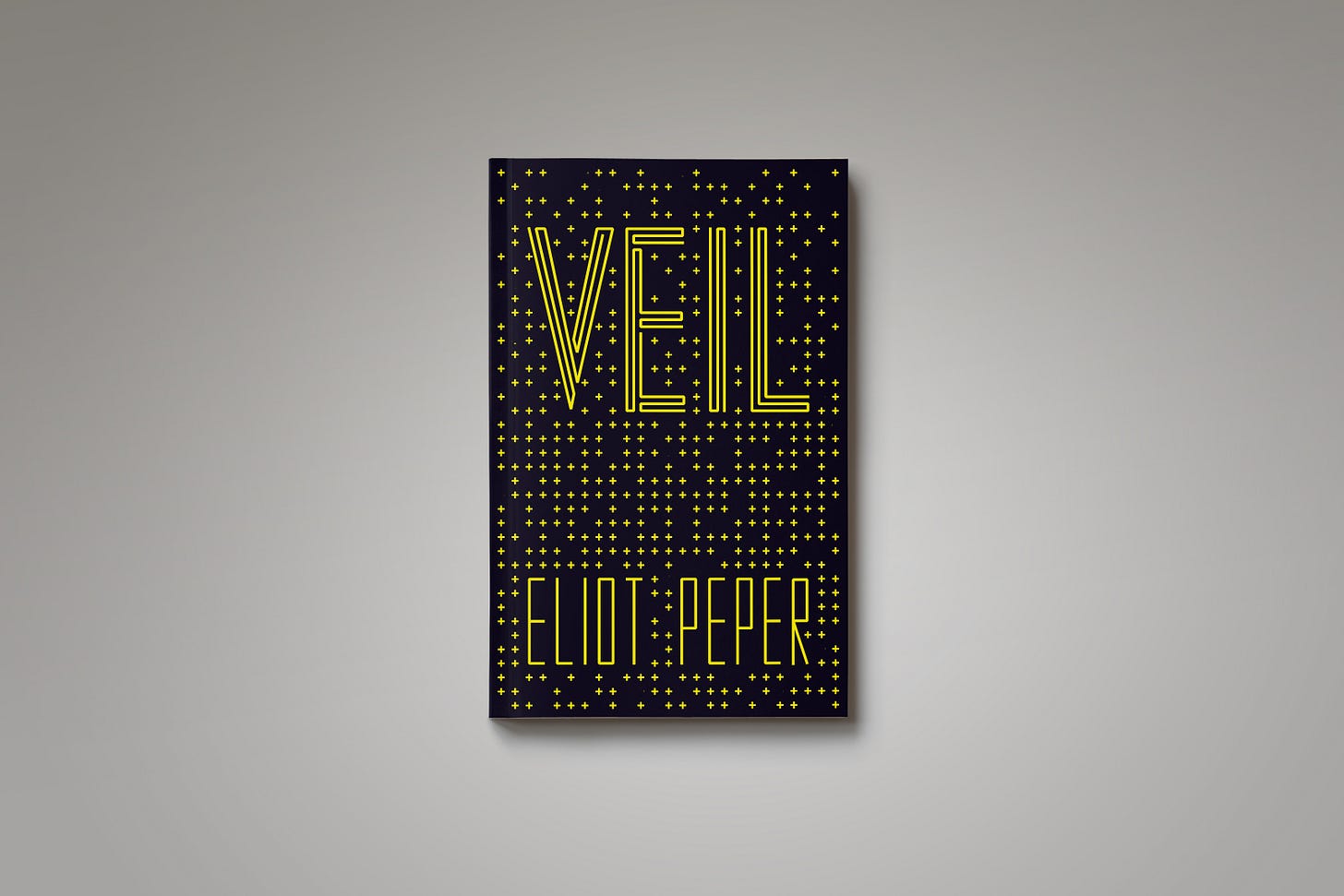A thought-provoking novel on the scariest response to climate change

Geoengineering, or hacking the planet to cool it down, is either a maniacal plan dreamt up by foolhardy scientists or a useful tool for staving off climate catastrophe—maybe both. It raises hard questions about what sorts of sacrifices humanity may have to make for the greater good and who gets to decide; questions that beg for nuanced conversations about the social, environmental, and political risks and rewards.
Yet in science fiction, geoengineering tends to get treated with all the nuance of Thor’s hammer striking a rock monster. Which is why Eliot Peper’s recent novel Veil, set on a near future Earth beset by climate crises, is such a refreshing read. This book gets geoengineering right by showing that there are no obvious right answers.
A fast-paced novel that unfolds like a political thriller, Veil tells the story of Zia León, a humanitarian aid worker who bounces around the world helping people suffering from climate-fueled droughts, storms, and sea level rise. When Zia learns of a secret effort to commandeer the climate, she faces a dilemma: How to let the rest of the world know about it without causing an international crisis. Zia must do so while navigating a web of dangerous corporate oligarchies desperate to keep the geoengineering plot secret and while working through her own, very personal, form of climate grief.
Veil joins a very small collection of stories whose plots revolve around geoengineering. Most other examples treat the hypothetical technology as unequivocally dangerous and bad—think Snowpiercer, where the last surviving humans live out their lives on a globe-trotting train after a climate hacking effort gone awry plunges Earth into an Ice Age, or Geostorm, an astonishingly boring disaster movie about a planetary weather control system that starts glitching out and dropping mega-tornadoes on Mumbai.
Peper, whose fiction focuses on the intersection of technology and culture, tells a very different kind of story in Veil. He first learned about geoengineering several years back, when science journalist Charles Mann was asked about it in a podcast interview focused on his recent book, The Wizard and the Prophet. Intrigued, Peper went on to read Mann’s book, which tells the story of two 20th century scientists, Norman Borlaug and William Vogt, whose ideas would go on to define two distinct strains of environmentalism. The wizards, epitomized by Borlaug, believe technology is the solution to our environmental challenges; the prophets represented by Vogt assert that the only way to stave off planetary disaster is to reduce our impact as a species.
Peper quickly realized how important the book’s ideas are when it comes to climate change and “specifically the kinds of challenges that any serious geoengineering effort would present.” If humanity takes the wizard approach of embracing geoengineering as a silver bullet solution, we might fail to make the carbon emissions reductions the prophets (along with all serious climate scientists) say are necessary to address climate change. But if we shun the tech because of this so-called moral hazard, we might consign millions of people to unnecessary suffering in the short term.

“What I personally find most interesting is difficult questions,” Peper told The Science of Fiction. “Nobody wants to say ‘let's try some really risky things that could have a really terrible effect down the line’. But what if you are experiencing an emergency scenario right now—what is worse? And what is worse for whom? It's those open questions that have really difficult, nuanced answers…when I stumble into one of those, I have to write up a novel, because I have no other way to process it.”
Peper did more research. He read Oliver Morton’s The Planet Remade, a popular nonfiction book on geoengineering. He combed through Morton’s references to find other books, research papers, and news articles that could deepen his understanding of the subject. He interviewed scientists who’ve studied geoengineering. Peper says his research was less focused on understanding all of the technical nuances of various planet-hacking proposals and more about ascertaining “what are the most interesting open questions, and how do those translate into people’s actual lives.”
“I would say that my discussions often wound up being more philosophical than scientific,” Peper said. “And that’s what helped me clarify the heart of Veil.”
Despite focusing on big ideas rather than technical esoterica, Veil does a remarkably good job getting the science right.
The plot centers on a flavor of geoengineering called stratospheric aerosol injection, which involves spraying small particles into the upper atmosphere, or stratosphere, to reflect incoming sunlight and cool Earth’s surface. Of all the geoengineering ideas scientists have proposed, this one is widely thought to be technically feasible, effective for reducing global temperatures, and cheap. The catch is that stratospheric aerosol injection could have all sorts of unexpected side effects, from benign ones like making sunsets redder to devastating consequences if, say, monsoon rains start drying up. The other catch is that once we start spraying the sky, it will be dangerous to stop as long as carbon keeps piling up in the atmosphere, as doing so could lead to a surge of warming, or “termination shock.” Veil explores all of this and more; Peper said the academic literature on stratospheric aerosol engineering offered “so much unexplored territory” that he didn’t need to stretch the science for the sake of storytelling.
Veil’s portrayal of Earth’s near future is somewhat grim. But there’s also an undercurrent of radical hope running through its pages that’s epitomized by Peper’s decision to cast people from nations in the Global South, including Costa Rica, Fiji, and the Maldives, as protagonists and unlikely power players. Peper said he chose to make his main characters from places traditionally overlooked in western climate narratives because they are the ones who face the most severe consequences of climate change—and who have the most at stake when it comes to geoengineering. He also felt that giving people from the Global South the responsibility to respond to a rogue geoengineering plot allowed him to play with the politics in an interesting way.
“Usually in in geopolitics, the biggest, richest countries with the most guns have the most power,” Peper said. Perhaps, if a coalition of different actors were tasked with responding to a new global crisis, “that coalition could derive its power from not being aligned with the power players. I just thought that was a really subversive idea."